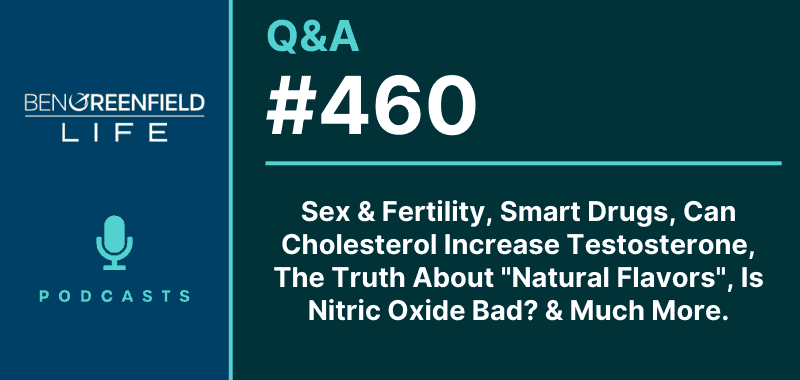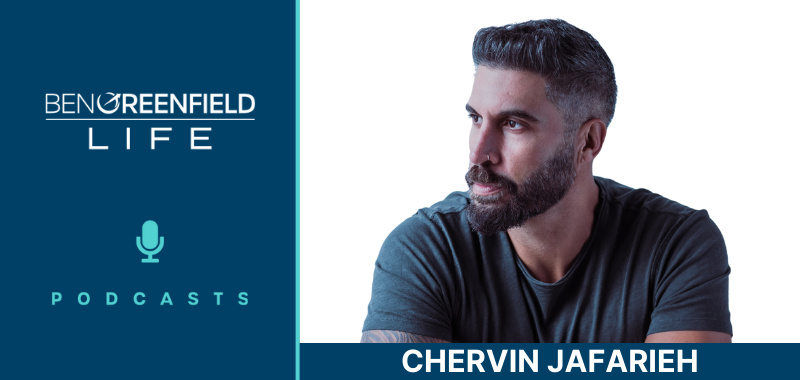March 12, 2016
Several podcast episodes ago, I tackled a very tricky and often confusing topic with a doctor named Konstantin Monastyrsky.
-Why it is that doctors tell us to eat plenty of fiber…and what doctors don’t know…
-How much fiber is “too much”, and how much it varies from person to person…
-The difference between just eating lots of fruits and vegetables vs. using a high fiber “cleanse”…
-The truth behind dangerous “laxatives”…
-What someone with constipation can do if high fiber and laxatives is not the solution…
-And much more…
That particular episode generated so many dozens and dozens of questions that I decided to bring Konstantin back, and in this episode, I ask him:
-Isn't there a “hormetic” effect to eating the type of components in the skin of foods like potatoes and tomatoes and eggplants?
-You say:
“Fiber intake has also been linked with the metabolic syndrome, a constellation of factors that increases the chances of developing heart disease and diabetes.” But that study you quoted in full says:
“Fiber intake has also been linked with the metabolic syndrome, a constellation of factors that increases the chances of developing heart disease and diabetes. These factors include high blood pressure, high insulin levels, excess weight (especially around the abdomen), high levels of triglycerides, the body’s main fat-carrying particle, and low levels of HDL (good) cholesterol. Several studies suggest that higher intake of cereal fiber and whole grains may somehow ward off this increasingly common syndrome.”
How would you reply?
-How do you address this association between fiber intake and lowering of coronary disease?
“Our results suggest an inverse association between fiber intake and MI. These results support current national dietary guidelines to increase dietary fiber intake and suggest that fiber, independent of fat intake, is an important dietary component for the prevention of coronary disease.”
“The greatest impact on lowering total and LDL cholesterol is derived from reduced intakes of saturated fat and cholesterol as well as weight reduction in obese persons. Diets high in complex carbohydrates and fiber are associated with reduced mortality rates from CHD and other chronic diseases. Fiber found in oats, barley, and pectin-rich fruits and vegetables provides adjunctive lipid-lowering benefits beyond those achieved by reductions in total and saturated fat alone. The AHA recommends a total dietary fiber intake of 25 to 30 g/d from foods, not supplements, to ensure nutrient adequacy and maximize the cholesterol-lowering impact of a fat-modified diet. Current dietary fiber intakes among adults in the United States average about 15 g, or half the recommended amount.”
-How do you feel about resistant starch and the current “resistant starch” interest in the dietary industry? Is that a form of fiber that also causes issues, or not? Would you recommend this diet in certain cases?
-How does one specifically “fix” a colon that has lack of bacteria. Does a probiotic work? OR would you need more of an enema approach? The reason I ask is I have seen many folks endorse the use of probiotic and/or butyrate enemas for colonic health.
-How about fecal transplants. How do you feel about those for restoring colonic health?
-When it comes to constipation, what is your #1 solution, in terms of specific ingredients or protocols that can help with it?
-And finally, the million dollar question, do you use a Squatty Potty?
Ask Ben a Podcast Question














This guy has been exposed by many as a total quack who is hawking his products on his website.
Check his background.
Most of what he says about the bowels is contrary to well established and accepted experts.
Follow Dr. Weil–an actual physician who always looks for alternative remedies first.
Hi Konstantin,
Thanks for the podcast! Any recommendations for women suffering from constipation and hemorrhoids caused by pregnancy? Just follow the same low fiber diet ? Thank you!
Hi Gianna, I reached out to Konstantin, and he wanted me to refer you to this for his recommendations: https://www.gutsense.org/gutsense/constipation.ht…
Hi Justin,
For a fermented vegetable to become free of fiber, it first needs to turn into a liquid (such as beer or wine). But for as long it remains crunchy and chewable, its insoluble fiber remains intact or near intact.
Traditionally (before refrigeration), fermentation was used as a method for preserving perishable foods. It wasn’t intended to somehow endow these foods with health benefits.
Regarding the reduction of fiber in fermented foods:
— A raw cabbage contains 2.5 grams of fiber (https://goo.gl/u6n8JM) per 100 grams.
— The same portion of sauerkraut made from the same cabbage contains 2.9 grams of fiber (https://goo.gl/vsOO1a), even more.
Fortunately (for your health), neither amount is large enough to cause any harm if you consume sauerkraut in moderation.
But why does sauerkraut contains more fiber than a row cabbage? For two reasons: First, because fermentation barely affects insoluble fiber. Second, because liquids are drained out after fermentation is completed, so there is more cabbage packed into the same portion. What gets fermented isn’t fiber, but sugars (3.2 grams per 100 grams of raw cabbage, and 1.7 g in sauerkraut).
Regarding probiotics in fermented foods: Commercial bacterial cultures that are used to start fermentation have little in common with innate human flora. Correspondingly, they will have little to no effect on your gut health. Also, these bacteria may “resist” lactic acid formed during fermentation, but not the hydrochloric acid in the stomach at its full concentration.
Hi Konstantin, I am curious to hear your take on naturally fermented vegetables such as sauerkraut. Does it not contain acid resistant probiotic species that will make it through to the large intestine? Will these species aid in the health of already existing probiotic colonies? Also, doesn’t the process of fermentation reduced the fiber content and increase the nutrient availability of that vegetable? Which would make it much better tolerated by the digestive track. Thank you for your time.
Hi Mr. Monastyrsky,
My digestion almost got fixed in a few days, after reading your site a few years ago, ditching all fiber, even from fruits and vegetables, and starting with the Colorectal Recovery Problem. Since then I researched nutrition a lot, and found that grains/beans/legumes and most vegetables cause inflammation in my GI tract, however some ripe fruits, and cooked tubers are great for my digestion (I don’t eat potato skin haha.)
Your advice to limit protein intake to 1-2 times a day has also been very helpful, I was overeating protein before.
You mention in this podcast that 200-400 grams of carbohydrates a day can increase the risk for heart disease/diabetes etc. However from what I seen populations eating a high carbohydrate diet from mostly tubers, with minimal animal products and low amount of polyunsaturated fats have almost no heart disease.
Thanks for your work, coming across your site was a life saver for me.
Hi ArtofHealthiness,
Thank you for your feedback. I hope your results will encourage others to look at my work without prejudice — not an easy task, considering the dogmatic nature of contemporary nutrition.
In regard to “…populations eating a high carbohydrate diet from mostly tubers, with minimal animal products and low amount of polyunsaturated fats have almost no heart disease.”
It may well be the case when looking at the composition of their diet in isolation from other factors, such as ethnicity, longevity, occupation, climate, social structure, availability of medical care and so on.
I often hear a similar argument about third world countries consuming a high fiber diet, but claiming a low rate of colon cancer and heart disease.
But a soon as you dig into data to verify this argument, you realize that most people from these countries are dead well before the onset of colon cancer and heart disease in the majority of adults in the West (>50 and over).
Thank you again for describing your success!
Is this guy an MD? Where did he get his degree? Fiber helps sweep excess bile and cholesterol from the body. Eliminating cholesterol through the bowel stops it from accumulating in the arteries. The idea that insoluble fiber is bad for you is ridiculous. How many millenia have humans been eating fruit with skins? He’s a quack.
Hi ETC,
I graduated from a medical university in Lviv, Ukraine in 1977 with a pharmacy degree. I am a full time medical writer since 1998, and the author of GutSense.org website.
Let’s address your statements one by one:
> Fiber helps sweep excess bile and cholesterol
> from the body.
(1) No, insoluble fiber doesn’t “sweep” cholesterol because cholesterol and water (the only substance fiber can absorb) don’t mix.
(2) Bile is 97% water, and the balance are bile salts, bilirubin, cholesterol, fatty acids, and lecithin. Fiber can’t “sweep” bile out because in healthy people most of the water (and almost all of cholesterol and fats) are reabsorbed back into the blood.
> Eliminating cholesterol through the bowel stops it from
> accumulating in the arteries.
Actually, almost all of the cholesterol that circulates in the arteries is made by the liver, and it doesn’t “accumulate” in the arteries or exists the body with stools.
> The idea that insoluble fiber is bad for you is ridiculous.
> How many millenia have humans been eating fruit with skins?
(1) Consumable fruits as they are known today are cultivated plants, and are only a recent (no more than a few thousand years) addition to human diet.
(2) Fruits are seasonal crops, and spoil quickly. Until the advance of refrigeration, fruits weren’t available for year-round consumptions or surface and air transportation.
In other words, until very recently, people couldn’t consume fruits “for millennia” as you claim.
Konstantin Monastyrsky
No, he’s a quack. His degree from Russia isn’t applicable here in the states for obvious reasons. He’s a self-taught nutritionist as is every YouTuber out there.
Want solid advice, follow a real MD and full time researcher like Dr. Greger at NutritionFacts.org
He will back every point with REAL Studies not anecdotal bullshit.
You seem like you’re not capable of thinking and deductive reasoning but instead, you rely only on whether or not someone has a degree. And what a weak argument to say that because someone’s degree isn’t applicable in the US, therefore I reject everything this person says.
Regarding being self-taught: autodidacts are the ones who can think outside the box better than anyone else because they aren’t taught inside the box. The “box” is often influenced by the agenda of big corporations so a lot of the knowledge you get inside the box isn’t knowledge but indoctrination.
Austin,
The symptoms attributed to SIBO aren’t a myth, but the condition is. In the most simple terms, SIBO happens in people with incomplete emptying. When their colons get filled up with impacted stools, feces (along with bacteria), reflux back into the small intestine, and this manifests itself in symptoms and diagnostic criteria associated with SIBO.
SIBO may also occur in people with a rare condition known as “ileocecal valve defect.” When this condition happens, the valve (sphincter) between the ileum (the last section of the small intestine) and the cecum (the first section of the large intestine) remains open 24/7.
People with this condition have a near permanent smell of stool in their breath because, unlike the large intestine, the small intestine absorbs the gases (and their smells), and excretes them through the lungs.
So if your breath doesn’t smell like your stool, you don’t have SIBO.
If you continue having bloating, it is caused by enteritis. This condition has a large autoimmune component, and the only way to find out what foods may be causing adverse reaction is via elimination diet.
Finally, if the above analysis is wrong, and you, indeed, are having bonafide SIBO (Small Intestine BACTERIAL OVERGROWTH), adding more high-quality BACTERIA (from probiotics) into the mix may cause even more OVERGROWTH.
I am getting ready to start Metronidazole for methane SIBO. I am considering taking sachromyes boulardii with it to keep my good bacteria from being completely wiped out. Is this a good idea? I already treated the methane SIBO with oregano oil,but after a few months it came back.
I would actually take a full-spectrum probiotic and not just the one you mentioned. I will vouch for any of the ones I [email protected]. I would also check out my article on how to limit the damage of antibiotics <a href="http:// :https://bengreenfieldfitness.com/2011/07/the-art-of-using-antibiotics-how-to-limit-the-damage/” target=”_blank”> <a href="http://:https://bengreenfieldfitness.com/2011/07/the-art-of-using-antibiotics-how-to-limit-the-damage/” target=”_blank”>:https://bengreenfieldfitness.com/2011/07/the-art-of-using-antibiotics-how-to-limit-the-damage/
Thank you Mr Monastyrsky! I love your site too. Everything you explain makes perfect scientific sense. I am also happy there are still people like you who raise their voice against the corruption of modern medicine and food industry. Thank you!!!!!
Thank you, Jennifer and Rossana. Also, a big deal of credit goes to Ben for allowing me to share my contrarian views with his devoted listeners and followers.
Hi Jennifer,
Thank you for your enjoying my interview. Here is a little blurb from GutSense.org regarding athletes and digestive disorders:
“Gastrointestinal (GI) disorders affect over 80% of otherwise healthy athletes [link to source: http://goo.gl/YJmqKo]. Bloating, abdominal pain, gastroesophageal reflux, nausea, vomiting, and diarrhea are the most common transient complaints.” (link to my site: https://goo.gl/L8suaC)
This material goes into more depth, but focuses mostly on constipation.
Do you need fiber as a bulking agent? Absolutely not. If you look at the size of the human anus (how tight and small it is) and the epidemiology of the hemorrhoidal disease (every second adult past 50 is affected), then it becomes immediately clear that the less “bulk” is getting down there, the better.
> Also, any thoughts on people with significant
> constipation at times, and at times not?
This situation is related to missing stools, incomplete emptying, or both. Fortunately, intermittent constipation means that your color is functioning properly. To avoid lapsing into the next constipation episode again, avoid missing regular bowel movements. Of course, how to accomplish this enviable goal is the central theme of my site.
Thanks and I am going to for sure check out your site!
Best,
Jennifer
Konstantin,
I really enjoyed your interview. The information was excellent and I was particularly a fan of you reminding everyone that studies are usually done with a serious bias toward the people funding them getting the outcomes they want. Statistics can be manipulated to prove anything!
I have a couple of questions. I have had a lot of digestive problems over the years and recently did an intense gut cleanse which I have to now undo because I feel worse. My problems were mainly related to excessive gas and bloating at times. I follow an extremely strict fairly traditional bodybuilding type of diet. I have tried other diets and for me it has not been good. Everyone is different, right?
I was curious about whether or not some fiber should be used as a “bulking agent”. Is fiber from food enough in most cases. It sounds like your answer would be yes but I have had little fiber the last few months with messing with my diet and had very hard dry stool if I am able to have a BM at all.
Also, any thoughts on people with significant constipation at times, and at times not?
Forgive me if these are redundant questions. I tried to read all the prior posts before but was in a bit of a rush.
Thank you again for sharing your knowledge!
Fascinating discussion guys, thank you…….I have a question for you
I have some level of gluten sensitivity/tolerance. I thought I had it dialled in, a little now and then and I would rarely get a reaction but slightly more than a little then I would. For almost a year now, I’ve been almost ( as best I can) totally gluten free. However I do have issues at times and I’ve never really figured it out. Excess fruit is a possibility as is the odd gluten free bowl of oats. Listening to your podcast and reading only a small part of your book it has given me a different perspective. My diet is mostly real food, a lot of fruit and veg……maybe a bit too much it would appear at times. Is this a reasonable assumption? In all other ways I’m a healthy strong 52 year old active guy. Thank you for opening my eyes to the world of fibre, that it perhaps isn’t such a healthy panacea after all. As with everything In health, moderation is key, yin and yang etc. Appreciate your views on this, thank you….
Hi Alistair
Thank you for your feedback! Yes, you’ll do much better, digestion-wise, by dialing down the amount of fruits and vegetables in your diet because this will bring a corresponding reduction in the amount of soluble and insoluble fiber.
Thank you for your reply Konstantin. I’ve made some changes and already notice a difference. Being gluten free is easy at home but not so when out and about. I’m pretty active and strength train. Bit partial to baked potato complete with skins. Something I need to change. More fat and low fibre and evaluate then. I’m going to pass on your site and book, a fantastic resource. Thank you so much and thanks Ben for bringing the issue to be fore.
Great information… thanks!
I was just talking to my mother (colon cancer survivor) who was telling me that her doctor keeps recommending fiber for her, even though it makes her feel horrible and doesn’t help. I sent her this podcast as it has great gut info.
Without going into too much detail, she’s been experiencing soooooo many issues, from discomfort, to constipation to diarrhea. She’s tried everything under the sun (mostly just medical advice) to help her situation without any success. I feel part of her problem is she bounces from one thing to the next without giving it much of a chance.
I keep telling her that she has to focus on strengthening her gut (if at all possible to help repair damage from radiation) and to only eat foods that will be easy for her body to digest while reducing inflammation. Hopefully there is a management potential, rather than just expecting everything to go back to normal.
Any advice to a gut that’s been damaged by chemo and radiation, and a partially removed intestine?
Hi Soly,
Your conclusion is correct — the focus must be on management. If it is done right, she can expect a great deal of improvement, but not 100%.
In terms of reducing inflammation, histamine-restricticted diet (http://goo.gl/go9QPN) is quite effective, especially when blended with The Low FODMAP diet (https://goo.gl/bsdp36).
You mother may also benefit from following the guidelines in my book: https://goo.gl/M8kf0r, as well as study the rest of the site regarding the management of constipation.
Hello Konstantin,
Awesome podcast, your views are very interesting. I was wondering if you could speak to those folks out there that have critters (pinworms, ringworms, pork tapeworms, etc), inside their digestive system and how fiber plays a role in eliminating them?
Thank You!
Hi Tom,
Thank you for your kind words about the podcast. Ben’s a visionary, and I appreciate his courage to expose my research to his loyal audience.
Sorry, I can’t answer your question well because I have zero experience in clinical parasitology.
I doubt fiber’s ability to eliminate intestinal parasites. If anything, it can cause even more damage by interfering with an already compromised assimilation of nutrients.
Ben, your guest claims that taking probiotics orally is useless because our stomach acids kill them before they reach the colon. Isn’t there clear evidence using tests such as Ubiome and more comprehensive tests available to doctors that this is not true? Haven’t you yourself taken these tests that showed an unfavorable gut flora balance and then you took prebiotics, took the test again and saw a positive shift in that balance after taking a course of probiotics specifically designed to positively alter that balance? Why didn’t you push back on that issue?
Hi Randy,
This is not what I am saying. My point was that probiotics do play a role, but they aren’t a viable replacement for innate human flora. Also, if probiotics are truly effective (meaning they reach the gut intact and wake up from hibernation state), when combined with prebiotics (i.e. soluble or insoluble fiber) they may cause more harm than good because a human colon wasn’t designed to accommodate a compost pile.
I also thought you said verbatim that probiotics taken orally were useless because they didn’t survive the acidic environment of the stomach. And even if they aren’t a viable replacement, that doesn’t mean that they can’t be helpful, does it?
Hi Tim,
The symptoms attributed to SIBO aren’t a myth, but the condition is. In the most simple terms, SIBO happens in people with incomplete emptying. When their colons get filled up to capacity with impacted stools, feces (along with bacteria), reflux back into the small intestine, and this manifests itself in symptoms and diagnostic markers associated with SIBO.
It may also happen in people with a relatively rare condition known as “ileocecal valve defect.” When this happens, the valve (sphincter) between the ileum (the last section of the small intestine) and the cecum (the first section of the large intestine) remains open 24/7.
People with this condition have a near permanent smell of stool in their breath because, unlike the large intestine, the small intestine absorbs gases (and their smells), and excretes them through the lungs.
So if your breath doesn’t smell like your stool, then you don’t have SIBO, but enteritis — the inflammation of the small intestine.
Dr. Mark Pimentel of Cedars-Sinai has pretty much proven that a lot of SIBO, maybe 85% of cases, is an auto-immune reaction caused by a food poisoning incident that more or less paralyzes the migrating motor complex that drives the small intestine by destroying the vinculin protein. If the bacteria that end up in the SI are m.smithii that produce methane then constipation arises due to the methane gas. It is not that constipation itself causes SIBO. You can get a simple blood test, ISBChek, to see if you have the vinculin anti-bodies that cause this migrating motor complex issue. If you can stop the methane production, either by killing the bacteria or blocking the methane via statins, then the constipation goes away. I have sat through 5 full days worth of SIBO Symposiums over the last several years and it has been fascinating what his research has found primarily funded by the DOJ as many troops came back from the Middle East with SIBO caused by food poisoning while on duty there.
I meant DOD.
A few things came to me upon hearing this.
#1 – if you are having chronic constipation, issues with fiber and any bloating you probably have methane type SIBO. I sure did and that should be the first thing doctors test for but it is usually the last since most GIs are not to knowledgable yet.
#2 – In the treating of my SIBO I had to stick to a low fiber, low carb, low FODMAP diet and it took me 18 months to get over it so by that time my colon flora was decimated. I had very low diversity and almost no butyrate and SCFAs being produced which was BAD. I went on a regime of probiotics (first with no pre-biotic fiber and later with resistant potato starch) and fermented foods plus increased the amount of carbs and FODMAPS and thus fiber I was eating for 4 months. This was Paleo so still relatively low carb compared to SAD. Upon retesting my microbial diversity was now in the top 97th percentile and my butyrate and SCFAs are back on track. This to me means that some combo of probiotics, ferments or insoluble fiber fixed my colon issues and got me back on track.
Very interesting podcast!
The old adage comes to mind,
“It’s not what you eat, but what you digest and assimilate that is most important”
Personally I’ve found lowering my the fiber in my diet DRAMATICALLY improved my digestion.
I’d definitely recommend doing a trial yourself and see how you feel.
Especially if you have any sort of digestive issues going on.
Thank you, Dan!
The credit goes to Ben. Without his unique perspective, expertise, and honesty, this material wouldn’t be as provocative and informative.
Konstantin – I found your work a couple years ago and was interested to hear it again here. Super fascinating perspective and I always love a complete paradigm shift. All that said, I’ve never found any evidence, empirical or even anecdotal to support what you’re saying. The one big exception is people with IBS/Crohns who yes, seem to feel better with a low fiber diet, but that is just like someone with no gall bladder doing well on a low fat diet… interesting for that condition, but not instructive for anyone with a gall bladder.
In reference to squatting while defecating… I’m not sure if you’ve ever had a squatting bowel movement, but it’s clearly how we’re built. Some people have tight hips, sure, but that doesn’t change our physiology.
Love the paradoxical views. I want to believe; but honestly, I just don’t.
Lucas,
Thank you for your kind words regarding my findings. In no way I am against natural fiber (or anything else) in moderation. My work isn’t focused on convincing people not to consume natural fiber, but on how to resolve chronic colorectal disorders related, among other things, to excessive intake of processed fiber (from fortification) and
fiber laxatives.
Re: squatting: if it helps anyone to overcome chronic constipation, enlarged hemorrhoids, incomplete emptying, diverticular disease, or anal fissures — I am all for it. My work is focused on people for whom squatting no longer helps.
There is no dispute that squatting is a perfectly natural and beneficial way (and the only way in nature) of moving bowels for physically strong people who are normal weight and free of colorectal disorders. Unfortunately, this definition no longer applies to about 75% of adult Americans.
The statement was made that the stomach is exclusively for proteins, which to my knowledge is not completely accurate as both the mouth and stomach do minimal amounts of lipid digestion. The mouth contains lingual lipase and the stomach contains gastric lipase. The lingual lipase cleaves fatty acids from the sn-3 position of the triglyceride and the gastric lipase cleaves short chain/medium chain fatty acids from the sn-1 position. By the time the lipids have entered the small intestine roughly 30% of the lipid has been broken down.
Adam,
There is no dispute that lipase and amylase enzymes are secreted inside the mouth (with saliva) and inside the stomach. The point I had made during the podcast is that the stomach’s primary digestive function is the breakdown of proteins in its acidic environment.
Hi Ben, I wonder if anybody ever report problem since you changed your podcast media player format on this website? I’ve been having problem playing it, especially older ones that aren’t on iTunes (i use chrome). Thank you for sharing with us your awesome knowledge!
Someone should be in touch to help sort this out for you!
Hi
Ben
For me this subject will be usefull when he starts to talk about it at the moment you are doing your’e spiele, umm..way way too OTT.
Have you been to acting class ?
you will drive intelligent listeners away. this stuff is amazing…what ? even adolescents don’t talk like that, such hyperbole all the F..time is embarrassing.
What is it with it with the change of voice pitch ?
Otherwise I really like your ideas and approach and empahsis on fitness and holsitic approaches voted one of … Hubris isn’t a qaulity dummy it’s an sign of ignorance Ben shoot himself in the foo, yes that Ben… awe ..a-awe-mazing , I am getting tired its 10pm GMT baby.
Oh your off again, I want to hear him Ben …
Sleep well R
https://youtu.be/gOZcbNw7sng “How The Gut Microbiota Affects Our Health with Dr. Erica & Dr. Justin Sonnenburg” by Dr. Rhonda Patrick
A piece from the show notes (relevance to this podcast=fiber)-
“Published on Dec 2, 2015
Dr. Justin Sonnenburg is an associate professor of microbiology and immunology at Stanford and Dr. Erica Sonnenburg is a senior research scientist in the Sonnenburg lab where they the research many aspects the interaction between diet with the 100 trillion or so bacteria in the gut (specifically the colon) and how this impacts the health of the host (which in this case is a laboratory research mouse). In this episode we discuss the pivotal role fiber plays in fueling good bacteria in the gut to produce compounds that regulate the immune system including increasing the number of T regulatory cells, which are specialized types of immune cells that keep the immune system in check and prevent autoimmune responses, and how these compounds also increase other types of blood cells in the body in a process known as hematopoiesis. We also talk about how the lack of fiber in the typical American diet actually starves these good bacteria of their food. This has an effect not only on the immune system and autoimmune diseases but also results in the breakdown of the gut barrier, which leads to widespread inflammation and inflammatory diseases.”
This message is not meant to be an advertisement, but is intended to be a potential pathway to fiber-enlightenment. I do hope this message is relevant and is not preemptive by the time I finish listening to the podcast…
“We also talk about how the lack of fiber in the typical American diet actually starves these good bacteria of their food. This has an effect not only on the immune system and autoimmune diseases but also results in the breakdown of the gut barrier, which leads to widespread inflammation and inflammatory diseases.”
Adrian, perhaps this is true in mice, but not in humans because innate human bacteria reside EXCLUSIVELY inside the mucosal membrane of the large intestine, not INSIDE the colon’s lumen (cavity), and they (bacteria) get all of the nutrients they need from mucus.
So anything that you hear or read about bacteria needing fiber for nutrients is a total non-sense. If in doubt, consult any textbook on human physiology or medical microbiology.
Fantastic interview. Great information.
The link to the book, however, does not take you to a place to get the book for free as stated on the podcast. You can buy it through this site. I was able to find a link to a “free” version, but you had to register on TzarMedia. They want a credit card. I looked up reviews of this company and they were all one star with many complaints about cards being charged without cause. If the book is really free, can we have a direct link to a download? Thanks!
Hi Brian,
Here is a link to the full-text.
We’ll be releasing a newer version of the site in a week or so, and it will be accessible from the main menu.
The above book link does not work, how can it be accessed?
thank you
Great information. Thank you for that. My question is about my two year old son who has complaints of pain in his stomach when he needs to poop. We have had X-rays taken of his stomach and it shows a buildup of poop. His doctor has recommended a higher fiber diet and stool softener which does get him to go but still the complaints of pain. Any suggestions would be appreciated.
Hi Zach,
Giving more fiber to a child with abdominal distress is an abomination and outright malpractice. Any primer on GI disorders calls for a low-density (fiber-free) diet in these situation, and even more so in children. Please begin your study here.
What about recent analysis of Paleo Poo showing we consumed 100 to 150 grams of fiber a day as well as the extremely high fiber intake of hunter gatherers?
Hi Chris,
That’s an utter nonsense. The Paleo era was tens of thousands of years ago. If you have a dog or a cat, and they poo in your backyard, bacteria and elements will turn it into dust in a few weeks. There is ABSOLUTELY no way to determine what was in a poo tense of thousands of years ago unless it was encased in ice all the way up north. But people living out there (Inuit, etc.) couldn’t gather fiber-containing foods even if they wanted to. This whole analysis is a complete and total fabrication.
Hi Konstantin,
Thanks for the interesting podcast.
Assuming we do not have evidence of what paleo people ate, we do have anthropological evidence of what hunter gatherers eat now. Jeff Leach is studying the Hadza in Tanzania. He surmised that their incredible good health is partly due to their very high fibre consumption; the young children eat upwards of 100grams per day and, apparently, experience no gi issues.
I’d also like to see a reply to this, as I was wondering the same thing. Thanks.
following :)
Any follow up on this?
We’ve got two ends of the spectrum here in relation to what Jeff Leech is saying as compared to what Konstantin is saying.
One who advocates high fermentable fibres and the other who does not.
My feeling is with Jeff. We are a product of our evolution and I simply cant imagine our ancestors living a fibre free existence or fibre limiting existence, in fact quite the oppostie. I would imagine they ate quite a lot of fibre found in ground tubers, tough fruits etc. with supplemental meat where they could get it. As a result we have been ‘designed’ over millenia to make use of the fibre we eat, in conjucntion with bacteria from ‘real foods’. People who find it difficult to deal with even the simplest of fibrous carbs e.g. bananas simply have broken guts! Konstantin said himself he cant tolerate bananas. I get it that people with broken guts need help but this advice does not pertain to healthy individuals following a real food diet as advocated by WAPF or PALEO or whatever.
My point here is we have people who are born phyically fit and robust and then we have people who are not. Same goes for an individuals ability to digest and assimilate foods. To term an old phrase, you are either born with a robust/tough constitution or you were not.
Living in a modern westernised environment, eating sterile foods and drinking chlorinated water doesnt help anyone but saying that fruits and veggies are bad because of the fibre they contain strikes me as cazy! It maybe works for people with broken guts but for people who have functioning guts this is bad advice.
I wonder Konstantin have you ever had your stool analysed? The reason I ask pertains to Jeff Leech’s work which tends to suggest that people with compromised guts are missing bacteria that should otherwise be present in a healthy gut. That stool PH has an influence on health in that people with akaline stools i.e. low carbers, provide the perfect environment for pathenogenic bacteria to thrive in their guts, whereas acidic PH stools provides that exact opposite envirnoment that is conducive to beneficial bacterial growth.
Still working on getting Jeff on the podcast…stay tuned…
http://journals.plos.org/plosone/article?id=10.13…